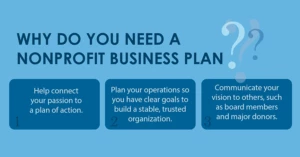by Soumyajit Admin
Share

Embarking on the exciting journey of launching a startup is a thrilling experience, but it is not without its challenges. One of the essential tools in your entrepreneurial toolkit is a well-crafted business plan.
A business plan for startups is more than just a document; it is your roadmap to success. It outlines your vision, strategy and financial projections, serving as a foundation for your business’s growth.
So, here in this comprehensive guide, we will be going to dive deep into the art and science of crafting a business plan for startups. Whether you are a first-time entrepreneur or a seasoned business owner looking to launch a new venture, you will find valuable insights, expert tips, and practical advice to ensure your business plan sets you on the path to success.
Understanding the Importance of a Business Plan
A Business Plan for Startups isn’t just a formal document; it’s the cornerstone of your entrepreneurial journey. Before we embark on the journey of crafting one, let’s unravel why it’s an absolute necessity for startups.
Clarity of Vision: At its core, a business plan serves as a compass, helping you navigate the often turbulent waters of entrepreneurship. It forces you to define your business’s mission, vision, and goals with precision. This clarity of vision is more than words on paper; it becomes the guiding light that informs your daily decisions and actions. It ensures that you stay aligned with your initial purpose and don’t stray off course when challenges arise.
Attracting Investors: Securing funding is a significant milestone for any startup, and a well-prepared business plan is your ticket to gaining the confidence of investors and lenders. It showcases your professionalism and commitment to turning your vision into reality. Investors need assurance that their money is in capable hands, and a meticulously crafted plan provides that assurance.
Operational Roadmap: Your business plan is your playbook, detailing how you’ll operate your startup from day one and beyond. It goes beyond the theoretical and dives into the practical aspects of running a business. It outlines your product development, marketing strategies, sales tactics, and operational procedures. Having a clear roadmap ensures that you’re not just reacting to challenges but proactively working towards your goals.
Risk Management: Entrepreneurship is fraught with uncertainties and risks. However, with a well-prepared business plan, you can identify potential pitfalls in advance. By conducting a thorough risk analysis, you can develop strategies to mitigate these risks. This proactive approach increases your chances of success by minimizing the impact of unforeseen challenges.
So, on a simple note, a Business Plan for Startups is your compass, your investor magnet, your playbook, and your shield against uncertainties. It’s the foundation upon which you build your business, providing you with the clarity, direction, and resilience needed to thrive in the competitive world of startups. Armed with this understanding of its importance, let’s now delve into the intricacies of crafting a Business Plan for Startups.
Read our dedicated article on Top Strategies For Successful Change Management In Your Company.
The Components of a Business Plan
A well-structured Business Plan for Startups is akin to a meticulously designed blueprint for constructing a successful venture. It’s a multi-faceted document that provides comprehensive insights into your business. Here’s a closer look at the essential components that make up this crucial roadmap:
- Executive Summary: Often considered the front door of your business plan, the executive summary is the first impression you make on potential investors and stakeholders. In a concise yet compelling manner, it encapsulates the core essence of your startup, highlighting key aspects such as your mission, vision, objectives, and the unique value proposition that sets you apart from the competition. Think of it as the trailer that teases the exciting story your business plan will unfold.
- Company Description: This section is where you introduce your startup to the world. It delves into the specifics of your venture, explaining its history (if applicable), its mission, and the core values that drive it. You paint a vivid picture of your business’s identity, its journey to date, and the overarching purpose it serves in the market. It’s your opportunity to establish a connection with the reader and make them invested in your story.
- Market Research: Armed with a deep understanding of your target market, you present a comprehensive analysis of the industry landscape. You delve into market trends, identify growth opportunities, and assess potential challenges. By analyzing your competition, you demonstrate a keen awareness of the market’s dynamics. Furthermore, you define your ideal customers, their demographics, needs, and preferences. This section serves as the compass guiding your strategies in the competitive marketplace.
- Products or Services: Here, you provide a detailed description of what your startup offers. You don’t merely list your products or services but rather explain how they address specific market needs and pain points. What makes your offerings unique and valuable? How do they align with your target audience’s desires? This section is where you showcase the heart of your business.
- Marketing and Sales Strategy: Your business may offer exceptional products or services, but without a well-thought-out strategy for reaching your target audience and converting them into loyal customers, success remains elusive. This section outlines your plans for marketing, advertising, and sales, from digital marketing campaigns to brick-and-mortar sales channels. It’s where you detail how you’ll make your brand known and loved.
- Management and Team: People are at the core of any successful business. In this section, you introduce the key players who will drive your startup’s success. Highlight their qualifications, experiences, and roles within the organization. Showcase the skills and expertise that make your team well-equipped to execute the strategies laid out in the plan. This is where you build trust by demonstrating that your startup has the right talent in place.
- Financial Projections: The financial projections section is where you put numbers to your vision. It includes income statements, cash flow projections, and balance sheets. It’s essential to be realistic and conservative in your estimates, providing a clear picture of your startup’s financial health and growth potential. Investors want to see a clear path to profitability and a strong understanding of your financial needs.
- Funding Requirements: If your startup requires external funding, this section specifies the amount of capital needed and how you plan to allocate it. Investors want to know where their money will go and what returns they can expect. Be transparent about your funding needs and how you intend to use the investment to drive growth.
- Appendix: The appendix is a repository for supplementary information that supports and validates the content of your business plan. This can include resumes of key team members, detailed market research data, legal documents such as patents or contracts, and any other documentation that adds depth to your plan.
Also, check out our article on The Role Of Technology In Business Consulting
How to Craft a Business Plan for Startups: The Step-by-Step Guide
Now, let’s walk through the step-by-step process of crafting a Business Plan for Startups:
Step 1: Research and Market Analysis
- Start by researching your industry and target market thoroughly. Understand your competition and identify gaps in the market.
- Gather data and statistics to support your market analysis.
Step 2: Define Your Business
- Clearly define your startup’s mission, vision, and values. What problem are you solving, and how are you uniquely positioned to solve it?
- State your long-term and short-term goals.
Step 3: Develop Your Products or Services
- Provide detailed information about your offerings. What makes them unique, and how do they address market needs?
- Include pricing strategies and any intellectual property considerations.
Step 4: Marketing and Sales Strategy
- Outline your marketing plan, covering online and offline strategies. How will you acquire and retain customers?
- Explain your sales channels and tactics for reaching your target audience.
Step 5: Management and Team
- Introduce key team members and their roles. Highlight their relevant experience and expertise.
- Describe your organizational structure and how it supports your business.
Check out our article on Tips to Improve Employee Productivity For Business Owners
Step 6: Financial Projections
- Prepare realistic financial forecasts, including income statements, balance sheets, and cash flow projections.
- Discuss your assumptions and show how you arrived at your figures.
Step 7: Funding Requirements
- Specify how much capital you need to launch and operate your startup.
- Explain how you’ll use the funds and the potential return on investment for investors.
Step 8: Write the Executive Summary
- Craft a compelling executive summary that encapsulates the most critical aspects of your business plan. It should grab the reader’s attention.
Step 9: Review and Revise
- Proofread your business plan for errors and inconsistencies.
- Seek feedback from mentors, advisors, or trusted colleagues.
Step 10: Present Your Plan
- Tailor your presentation of the plan to your audience, whether it’s potential investors, lenders, or team members.
- Be prepared to answer questions and address concerns.
Note:
When it comes to finding the Best Business Consultant in India, Econstra.com stands out as the ultimate destination. Our team of expert consultants has a remarkable track record in steering businesses toward success. With their unparalleled expertise and personalized strategies, they ensure that your business reaches its goals with maximum efficiency. When you choose Econstra.com, you’re choosing the best, and you’ll witness your business thrive under the guidance of top-notch consultants in India
Concluding Notes On Business Plans for Startups
A well-crafted Business Plan for Startups is your ticket to success in the competitive world of entrepreneurship. It’s not just a formality but a vital tool that guides your startup’s growth and attracts investors. By following the steps outlined in this guide, you can create a comprehensive and compelling business plan tailored to the unique needs of your startup.
Remember, the journey of entrepreneurship is filled with twists and turns, and your business plan will be your constant companion, helping you stay on course and navigate the challenges. So, take your time, conduct thorough research, and seek guidance when needed. With dedication and a solid plan in hand, your startup can turn its vision into reality.
Start now, and let your entrepreneurial dreams take flight!
STAY IN THE LOOP
Subscribe to our free newsletter.
In the fast-paced world of business, effective task management is key to success. Yet, many professionals fall into common pitfalls that hinder productivity and efficiency. Today, here, in this blog post, we will explore some of the common mistakes in task management in business and offer practical tips on how to avoid them. From overlooking […]
In today’s fast-paced business world, managing and optimizing resources efficiently is essential for staying competitive. Enterprise Resource Planning, often abbreviated as ERP, is a powerful solution that enables organizations to streamline their operations, boost productivity, and achieve long-term success. This blog will delve deep into the intricacies of how enterprise resource planning works, shedding light […]
It is a hard truth that what’s holing up behind the numerous pretty faces is a reality that numerous organization aren’t aware of: not all experts are made equivalent. What’s more, we realize you subtly concur. Indeed, it’s conceivable that you may as off now have a slight tendency that something is off about the […]
Not-for-profit advisors can make a gainful expansion to your association’s staff. Doesn’t matter how skilled your group is, a few assignments and ventures could utilize an outside master. Business consultants can be particularly useful for exceptional activities, fundraising for different projects, or anything that falls outside your group’s average range of abilities. Numerous charities delay […]




